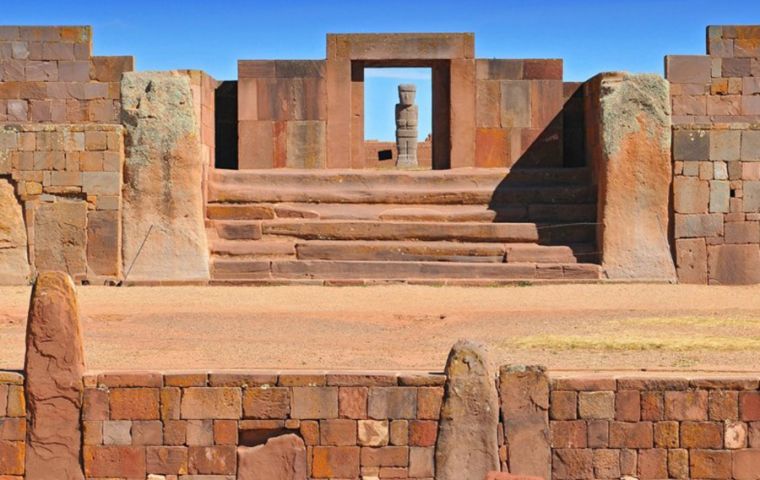Discovery of Tiwanaku Civilization temple in Bolivia announced

Much about the Tiwanaku civilization remains unknown, Capriles pointed out
Researchers led by Bolivian archaeologist José Capriles (Penn State University) discovered the Palaspata temple, a ceremonial complex linked to the Tiwanaku civilization, in Ocotavi, Oruro, Bolivia, approximately 215 km south of the main Tiwanaku site near Lake Titicaca, it was announced this week.
The temple, dating between 500 and 1000 AD, measures about 120 by 150 meters, featuring 15 quadrangular enclosures in a U shape around a central courtyard, aligned with the solar equinox, indicating its ritual purpose.
Located strategically on a hill near the La Paz-Cochabamba highway, the site connected trade routes across diverse ecosystems: Lake Titicaca’s agricultural lands, the arid central altiplano for llama grazing, and Cochabamba’s fertile valleys.
The position of this site is truly strategic, as today, in Tiwanaku times, the site connected three main trade routes that connected three very different ecosystems: the productive lands around Lake Titicaca in the northern altiplano, the arid central altiplano, ideal for llama grazing, to the west and the productive eastern Andean valleys of Cochabamba to the east, Capriles explained in a press release.
The discovery, facilitated by satellite imagery, drone photography, and photogrammetry, highlights Tiwanaku’s territorial expansion and its role as a theocratic, trade-focused state with advanced planning.
The site, known locally but previously unstudied due to its discreet location, was uncovered during an archaeological monitoring project prompted by nearby road construction. Carbon dating began in 2022, confirming its Tiwanaku origins.
Experts, including US archaeologist Charles Stanish and Bolivian official Julio Condori, emphasize its significance in revealing the civilization’s complex social, political, and economic networks.
Other experts participating in the team were Bolivian archaeologist Sergio Calla Maldonado, currently a master’s student at the University of Granada, archaeologist Juan Pablo Calero, and Christophe Delaere, research associate at the Université Libre de Bruxelles.
The Tiwanaku Civilization of more than a thousand years ago is considered one of the first complex communities in the region and a predecessor of the Inca Empire. Much about the Tiwanaku civilization remains unknown, Capriles also pointed out.




